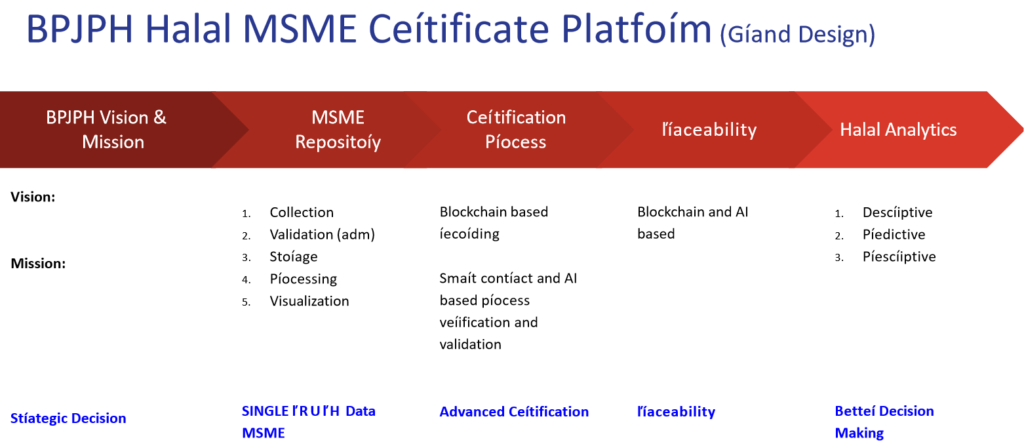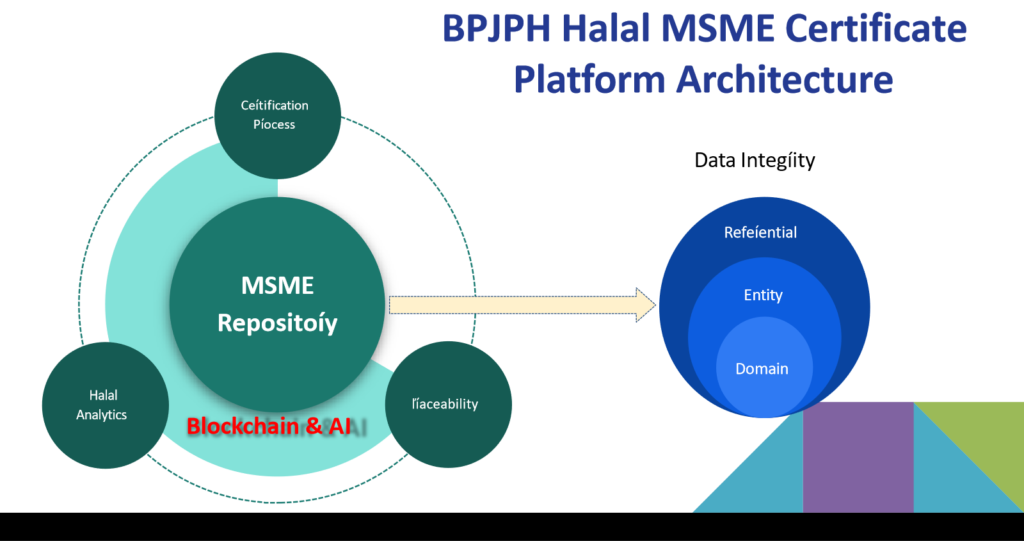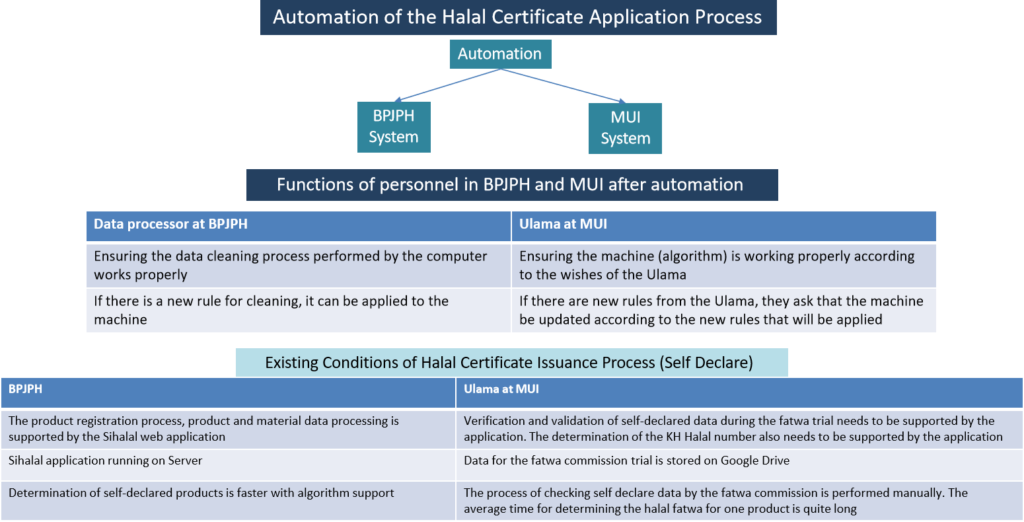Oleh Prof. Dr. Ir. Yandra Arkeman, M.Eng. | 06 Februari 2023
Sharia Economic & Finance Outlook (ShEFO) 2023

Sistem pencatatan secara digital untuk proses ini sudah ada, namun kurang memadai karena masih rentan terhadap kejahtan, kecurangan dan pemalsuan, Oleh sebab itu diperlukan sistem pencatatan berbasis blockchain yang bersifat 3T yaitu: trusted (terpercaya), transparent (transparan) dan traceable (tertelusuri), Blockchain memberi semua pihak (peer) catatan transaksi secara real time yang aman (high security), terenkripsi (cryptography), mudah diakses, tidak bisa diubah (kekal)
Blockchain mengoptimalkan proses, membuat komoditi mudah dilacak, menjamin keamanan pembayaran dan pembiayaan, memfasilitasi verifikasi kualitas dan membantu meningkatkan pelayanan publik dan swasta. Traceability halal secara khusus merujuk pada penggunaan teknologi blockchain untuk memverifikasi bahwa produk telah diproduksi dan diproses sesuai dengan hukum Islam. Menggabungkan teknologi artificial intelligence dengan teknologi blockchain dapat mempermudah proses sertifikasi halal di Indonesia dan membuatnya lebih efisien dan andal. AI dapat digunakan untuk mempermudah evaluasi informasi produk dan memastikan bahwa produk memenuhi kriteria untuk sertifikasi halal.
BLOCKCHAIN-BASED TRACEABILITY 4.0 & 5.0
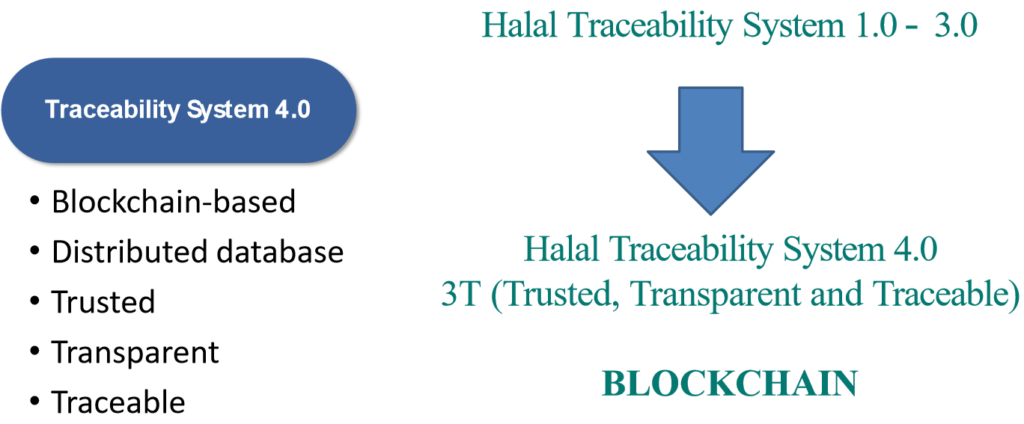
Traceability System 5.0
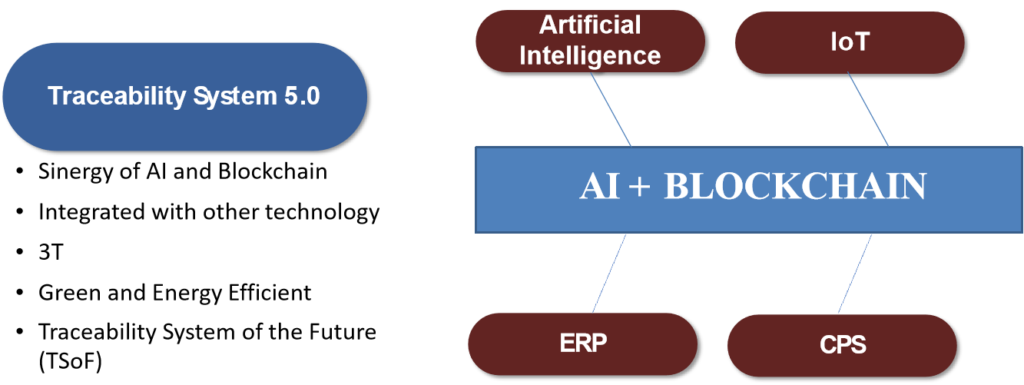
Conventional Halal Value Chain Business Model
Weakness :
- The length of the value chain from upstream to downstream
- Value chain information from procurement to consumers is not well documented and the information system is still conventional and centralized (cannot be seen and approved by all participants)
- A centralized system will be vulnerable to counterfeiting in every activity in the value chain (fraud and adulteration)
- The mixing between halal and non-halal materials,
- equipment is very large and cannot/difficult to trace
- Halal traceability will be difficult because of the forgery,
- which results in delays in the halal audit process
Implementation of Blockchain
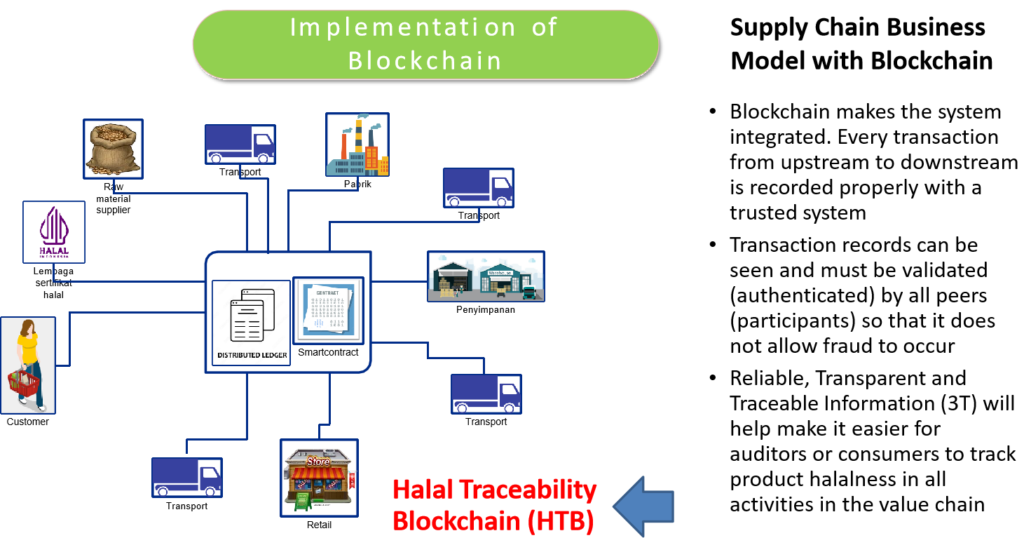
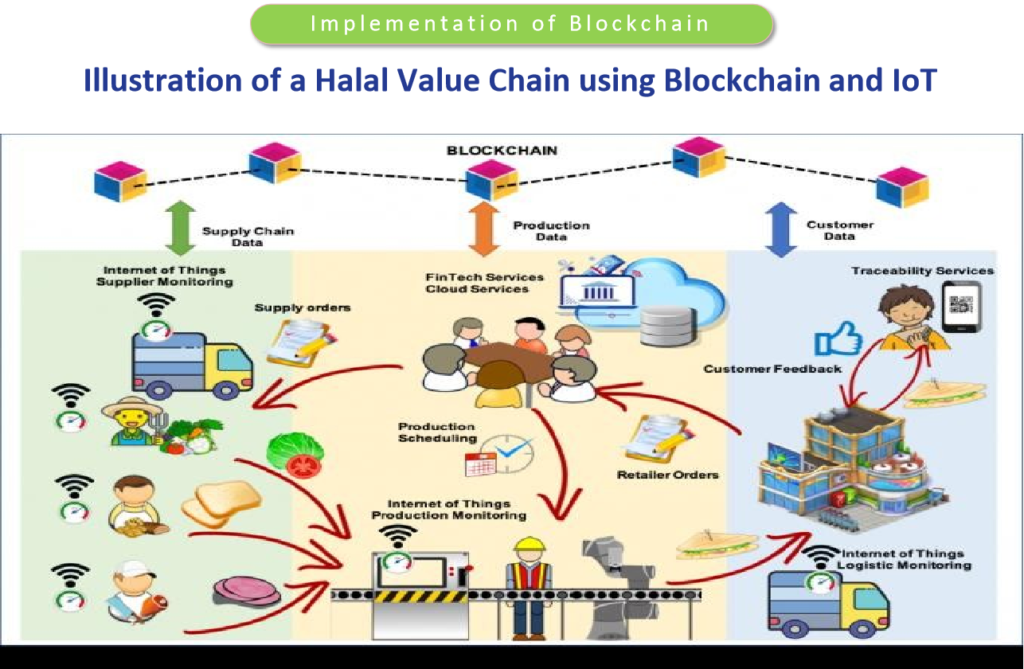
1. Challenges in Implementing Halal Traceability Blockchain (HTB)
Technology
- Currently, the halal industry in Indonesia does not yet have a good, reliable, and trustworthy traceability system.
- Unintegrated system
- It takes blockchain technology innovation and AI to bring smart tools to
- the halal industry.
Mind Set and Leadership
- The high cost of implementing blockchain technology
- Transparency is considered a threat to companies but on the contrary
Knowledge and Skill
- Lack of socialization about the Halal Supply Chain with Blockchain
- Lack of human resources who master Blockchain because of the gap
- understanding in the education sector with companies
- Mastery of technology and information systems of companies in Indonesia which is still diverse and not standardized
Infrastructure and Regulation
- Regulations in blockchain and AI technology, in Indonesia, have not been formulated in detail
- There is no obligation to use the Halal Blockchain platform
- Inadequate infrastructure at the rural level
2. Strategies and Solutions for Successful Implementation of Halal Traceability Blockchain (HTB)
Technology
- Good mastery of technology (digital literacy)
- Halal Blockchain platform that suits the needs of the community
- (appropriate blockchain)
- Blockchain Platform made in Indonesia (Indonesia Blockchain Platform)
Mind Set and Leadership
- Blockchain and digital technology are a must in the era of IR 4.0/5.
- Honesty and transparency are the future languages of the world
Knowledge and Skill
- Education about the importance of the Halal Value Chain with Blockchain
- Education and training
- Blockchain and AI competency standards
Infrastructure and Regulation
- Regulation must precede technology
- Obligation to use Halal Blockchain for MSMEs and Large Industries
- Infrastructure improvement down to the village level
OUR RESEARCH: BRAIN IPB UNIVERSITY RESEARCH
Lesson learned from BRAIN IPB (Blockchain applications in agro-maritime, industry and business)
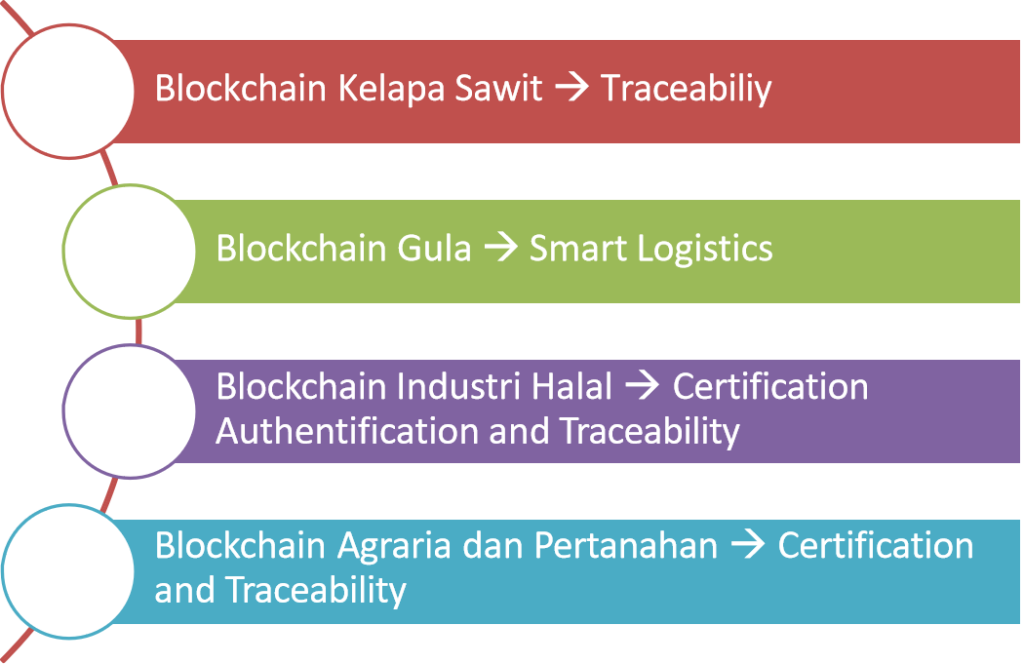
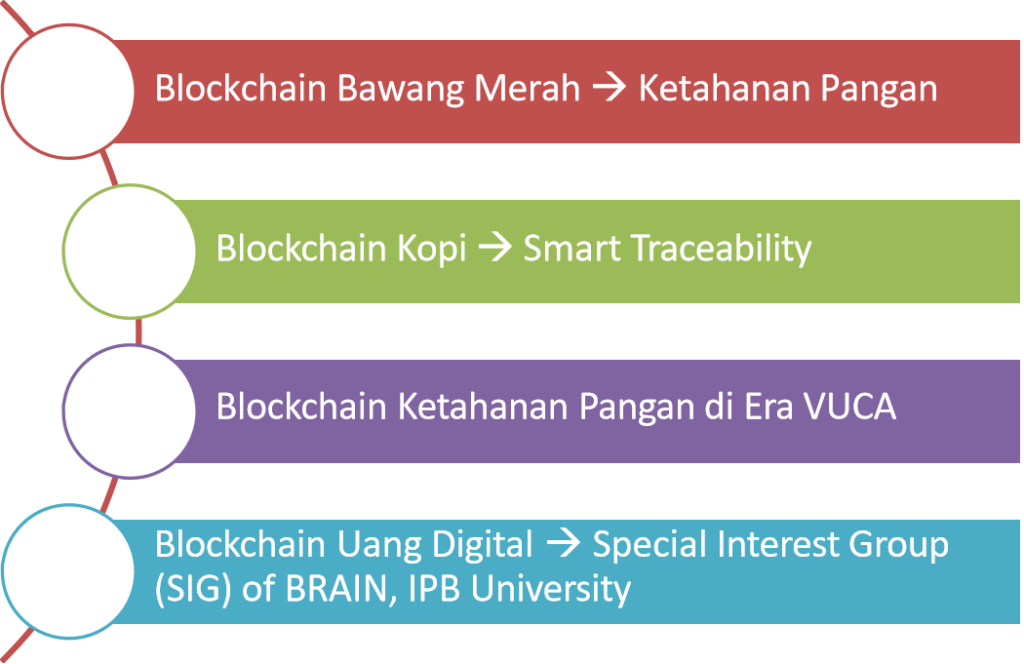
AI and Blockchain for Halal Certification in Indonesia
